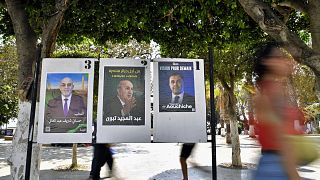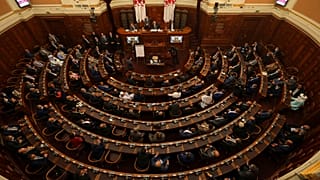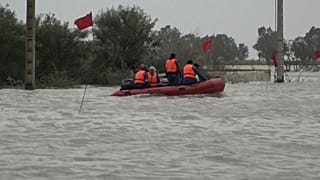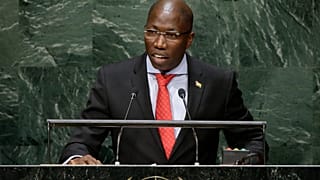Algeria
As Europe celebrates the 80th anniversary of its triumph over fascism and the end of World War II, Algeria is remembering a darker anniversary: the colonial-era massacres that erupted the same day.
In ceremonies in Guelma, Kherrata and Setif, the cities where the massacres took place, Algerians paid homage to those who were killed.
In a message this week, President Abdelmadjid Tebboune framed the event as a matter of national pride and prelude to the country's fight for independence after 132 years of French colonialism.
Algeria's ministry of war veterans is marking the anniversary with a series of events under the slogan, “A people without memory is a people without a future.”
The fight for independence
More than 500,000 tirailleurs (light infantry) from North Africa, West Africa, and Madagascar fought for France during World War II. Some volunteered. Others were forcibly conscripted. Many, including more than 100,000 Algerian tirailleurs, hoped their sacrifices would secure them greater rights.
But when the war ended, Algerians who dared to demand them were met with repression and violence, even as then-Gen. Charles De Gaulle exalted how “the cause of liberty and justice" had prevailed in a radio broadcast throughout France and its colonies, including Algeria.
On May 8, 1945, Algerians filled city streets in Ain Temouchent, Guelma, Kherrata and Setif, waving flags and reviving pre-war calls for independence. Protesters were met with police fire. Violent anti-French riots broke out, killing more than 100.
France subsequently launched an air and ground offensive that killed thousands of Algerians — 45,000 according to Algerian authorities and around 3,000 according to French statistics.
No official apology from France
Tebboune and French President Emmanuel Macron announced a truth commission-style “dossier de memoire” in 2022, led by a committee of historians from both countries. Yet, its activities have stalled amid deteriorating relations over issues such as immigration and how France juggles ties between Algeria and its regional rival Morocco.
Daho Djerbal, an Algerian historian who has written extensively on the events of May 8, 1945 and interviewed many survivors, said that day was a turning point in the country’s history when Algerians began to seek independence.
And, he said, France “has never acknowledged that they committed a mass murder. That's the current term; we can call it a crime against humanity or a war crime. There was no declared war against the Algerian people. And we sent the air force, the navy, and field artillery to suppress a demonstration.”
French leaders, including Macron, have called for truth and recognition but stopped short of fulfilling Algeria's demands for a formal state apology.
A delegation of around 30 French lawmakers from left and centrist parties arrived in Algiers on Wednesday to participate in the commemorations of the massacres.











00:58
Police in Senegal arrest 14 members of alleged transnational paedophile gang
01:11
Niger military government to sue French uranium giant over environment
02:20
French-Nigerian artists team up to craft future hits
Go to video
France intercepts suspected 'shadow fleet' tanker from Russia
01:10
Mahmoud Dicko, the exiled imam defying Mali's military junta
01:00
Farmers leave Paris but tensions rise in Toulouse over EU-Mercosur trade deal